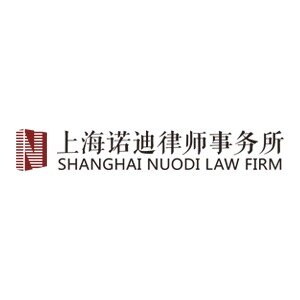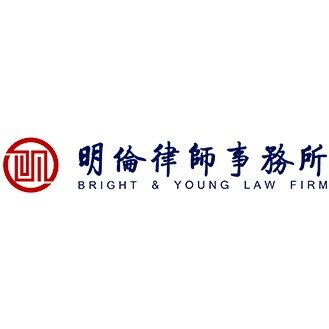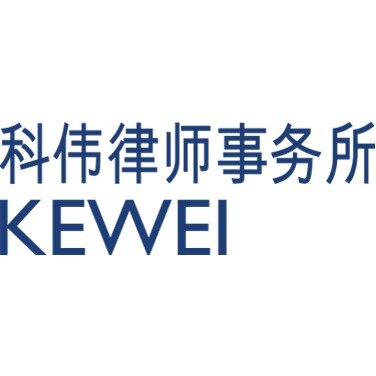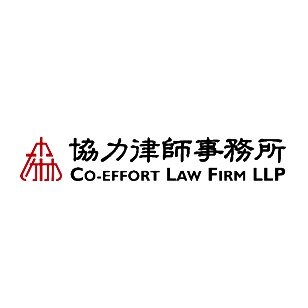Best Funds & Asset Management Lawyers in Shanghai
Share your needs with us, get contacted by law firms.
Free. Takes 2 min.
List of the best lawyers in Shanghai, China
About Funds & Asset Management Law in Shanghai, China
Funds and asset management is a specialized area of financial law that deals with the creation, operation, and regulation of investment funds and the services involved in managing assets for clients. Shanghai is recognized as a major financial center in China and globally, with a rapidly evolving funds and asset management landscape. The city’s legal framework supports both domestic and international investment funds, private equity funds, hedge funds, and wealth management service providers. The regulatory environment is shaped by national laws and regulations, with local authorities playing a significant role in implementation and oversight. This creates a unique environment that is both dynamic and complex for investors, fund managers, and service providers.
Why You May Need a Lawyer
The funds and asset management sector in Shanghai is governed by a dense web of regulations, which can pose significant challenges for individuals and businesses. Here are some common situations where legal assistance can be crucial:
- Setting up or registering investment funds or asset management companies
- Navigating licensing requirements for fund managers or advisors
- Reviewing or drafting fund constitutive documents, such as funds’ prospectuses or partnership agreements
- Structuring cross-border investments or compliance with foreign investment restrictions
- Dealing with regulatory inspections or investigations by authorities
- Resolving disputes between investors, fund managers, or service providers
- Ensuring ongoing compliance with anti-money laundering, tax, and reporting requirements
- Advising on exit strategies, liquidation, or restructuring of funds
Given the regulatory risks and significant financial stakes, engaging a lawyer with expertise in funds and asset management law in Shanghai is highly advisable.
Local Laws Overview
Funds and asset management in Shanghai is mainly regulated by national laws and rules enacted by supervisory bodies such as the China Securities Regulatory Commission (CSRC), the Asset Management Association of China (AMAC), and the Shanghai Municipal Financial Regulatory Bureau. Core regulations include:
- Fund Law of the People’s Republic of China - Governs the establishment, operation, and supervision of mutual funds and fund managers in China.
- Private Investment Fund Regulations - Outlines requirements for private equity, venture capital, and other private investment vehicles.
- Asset Management Business Rules - Sets requirements for banks, securities firms, and insurance institutions providing asset management services, including risk controls and disclosure.
- Crossboarder Regulations - Regulate the Qualified Foreign Institutional Investor (QFII) and Qualified Domestic Institutional Investor (QDII) programs, allowing cross-border investments and fundraising.
- Anti-Money Laundering and Tax Reporting - Require funds and asset managers to conduct KYC, reporting, and maintain internal controls.
Shanghai also operates free trade zones such as the China (Shanghai) Pilot Free Trade Zone, offering liberalized policies for eligible financial institutions and foreign-invested asset management companies. However, all participants should be aware of the very active regulatory environment and ongoing reforms.
Frequently Asked Questions
What types of funds can be established in Shanghai?
Typically, mutual funds, private equity funds, venture capital funds, hedge funds, and asset-backed securities products can be formed. Certain funds are subject to specific legal and regulatory requirements based on their investor base and investment targets.
Are there restrictions on foreign ownership in asset management companies?
Yes, while China has gradually relaxed restrictions in the financial sector, foreign investment in securities and fund management companies must comply with national rules. In certain cases, wholly foreign-owned asset management firms are allowed in Shanghai, especially in the free trade zones.
What are the main licensing requirements for fund managers?
Fund managers typically must register with the Asset Management Association of China and meet qualification requirements related to their capitalization, management experience, compliance practices, and operational risk controls.
How are private funds regulated differently from public funds?
Private funds are generally only allowed to raise funds from qualified investors and enjoy more flexible product design, but they must adhere to registration, information disclosure, and risk management obligations. Public funds require more detailed disclosure and are subject to stricter investor protection rules.
What legal documents are needed to launch a fund?
Key documents include the fund contract or articles, prospectus or private placement memorandum, compliance and risk management policies, and investor agreements. These documents should be carefully reviewed to comply with local regulations.
What are the primary compliance concerns for asset managers?
Compliance areas include anti-money laundering, investor suitability, information disclosure, risk management, valuation, connected transactions, and ongoing regulatory reporting.
How are investor disputes with fund managers resolved?
Disputes are generally resolved through negotiation, mediation, or arbitration. Litigation in Shanghai courts is possible, especially for contractual and fiduciary disputes.
Can funds in Shanghai invest in overseas markets?
Yes, but such investments are subject to the Qualified Domestic Institutional Investor programs and outbound investment controls, including caps and currency restrictions.
What are the penalties for regulatory violations?
Penalties can include warnings, fines, suspension or revocation of licenses, orders to rectify, asset freezes, or even criminal prosecution in serious cases.
How often do fund managers need to report to regulators?
Reporting requirements can be monthly, quarterly, or as specified by regulators. Fund managers must also submit immediate disclosures for significant events that impact fund operations or investor interests.
Additional Resources
For those seeking further information or assistance, the following official organizations and resources can be helpful:
- China Securities Regulatory Commission (CSRC)
- Asset Management Association of China (AMAC)
- Shanghai Municipal Bureau of Financial Regulation
- Shanghai Stock Exchange
- China (Shanghai) Pilot Free Trade Zone Administration
- Shanghai Bar Association - for recommendations on qualified legal professionals
Next Steps
If you require legal assistance in the field of funds and asset management in Shanghai, start by clearly identifying your legal needs or business goals. Gather all relevant documents and information about the fund or asset management issues you are facing. Consider reaching out to a law firm or legal practitioner with proven experience in Chinese financial regulation and investment management. You may also consult official regulatory bodies or professional associations for guidance on compliance or dispute resolution. Early legal consultation can help you avoid potential regulatory risks, structure your investment more efficiently, and protect your rights as an investor or fund manager in Shanghai’s fast-evolving financial marketplace.
Lawzana helps you find the best lawyers and law firms in Shanghai through a curated and pre-screened list of qualified legal professionals. Our platform offers rankings and detailed profiles of attorneys and law firms, allowing you to compare based on practice areas, including Funds & Asset Management, experience, and client feedback.
Each profile includes a description of the firm's areas of practice, client reviews, team members and partners, year of establishment, spoken languages, office locations, contact information, social media presence, and any published articles or resources. Most firms on our platform speak English and are experienced in both local and international legal matters.
Get a quote from top-rated law firms in Shanghai, China — quickly, securely, and without unnecessary hassle.
Disclaimer:
The information provided on this page is for general informational purposes only and does not constitute legal advice. While we strive to ensure the accuracy and relevance of the content, legal information may change over time, and interpretations of the law can vary. You should always consult with a qualified legal professional for advice specific to your situation.
We disclaim all liability for actions taken or not taken based on the content of this page. If you believe any information is incorrect or outdated, please contact us, and we will review and update it where appropriate.

















